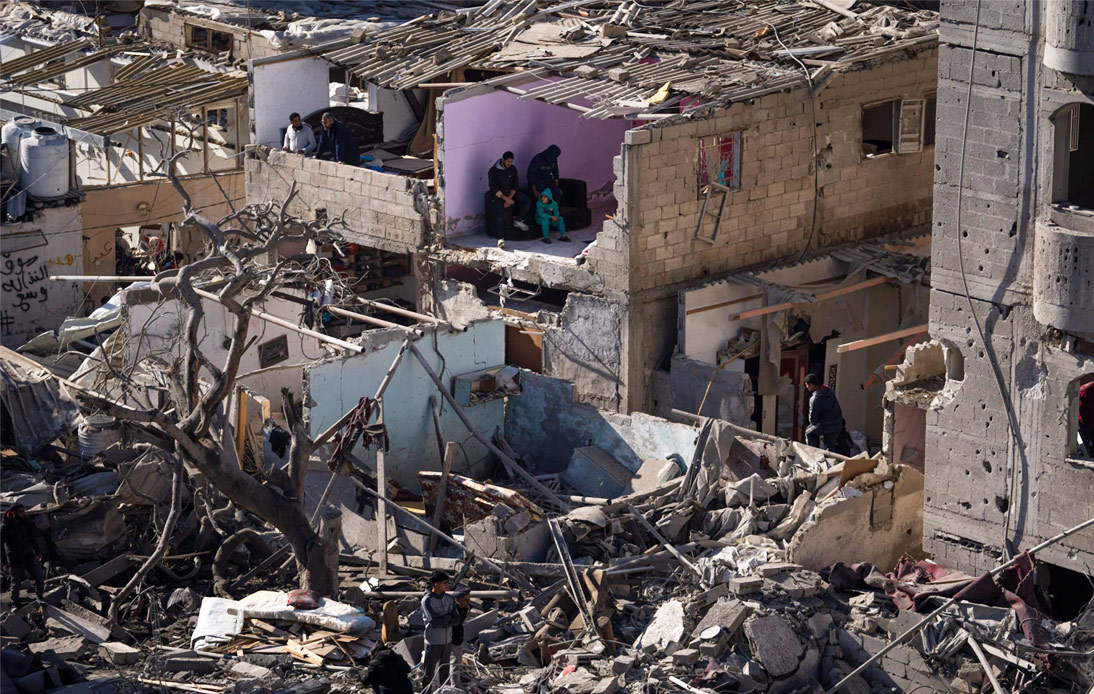
US President Joe Biden expressed his hope of achieving a ceasefire agreement in the Israel-Gaza conflict in time for the start of Ramadan.
The commencement of Ramadan, a sacred period of fasting from sunrise to sunset for Muslims, is expected on either March 10th or 11th.
In response to inquiries about the likelihood of reaching an agreement by Ramadan, Biden stated, “I’m hoping so. We’re working really hard on it.”
This statement comes amidst intense negotiations for a ceasefire and growing demands for Biden to play a role in ending the hostilities.
A potential ceasefire arrangement, as reported by a source familiar with the discussions to Reuters, would entail a 40-day halt in military activities starting from Ramadan, alongside an increased flow of aid into Gaza.
Additionally, the proposed agreement includes a prisoner exchange, releasing Palestinian detainees in return for Israeli captives at a ten-to-one ratio.
The onset of Ramadan is determined by the initial sighting of the lunar crescent, which varies by location.
The urgency for intervention in Gaza’s humanitarian crisis escalated following an incident on Thursday, where over 100 individuals died in a scramble for aid from delivery trucks.
Hamas accused Israel of attacking civilians, while Israel attributed the casualties to panic induced by its warning shots.
Following the incident, President Biden announced plans to airdrop aid into Gaza, saying, “Innocent people got caught in a terrible war, unable to feed their families. And you saw the response when they tried to get aid.”
“But we need to do more, and the United States will do more.”
According to United Nations data, approximately 25% of Gaza’s population faces the threat of famine. However, the strategy to deliver aid through airdrops has been met with criticism from humanitarian organizations, who argue that it is expensive and inadequate.
“Oxfam does not support US airdrops to Gaza, which would mostly serve to relieve the guilty consciences of senior US officials whose policies are contributing to the ongoing atrocities and risk of famine in Gaza,” the charity group said on Friday.
“While Palestinians in Gaza have been pushed to the absolute brink, dropping a paltry, symbolic amount of aid into Gaza with no plan for its safe distribution would not help and be deeply degrading to Palestinians,” Oxfam stated.
UN agency head Philippe Lazzarini criticized the airdrops as an expensive, last-resort measure, advocating instead for opening crossings for aid convoys and medical support.
“The real answer is to open the crossings and bring convoys and medical assistance into the Gaza Strip,” he added.
John Kirby, spokesperson for the White House National Security Council, announced the U.S.’s intention to also facilitate aid delivery to Gaza through both land and maritime routes.
This past Thursday, pilots from the Jordanian air force successfully delivered 33 tons of medical supplies and food to Gaza.
Reports from the Washington Post indicate that Jordanian aircraft have been used to deliver assistance supplied by both the U.S. and the UK, with France, Egypt, and the United Arab Emirates conducting similar aid operations.
Following an attack by Hamas that resulted in around 1,200 fatalities in southern Israel on October 7 and the abduction of 253 individuals to Gaza, the Israeli military initiated a large-scale assault against Hamas through air and ground operations.




















